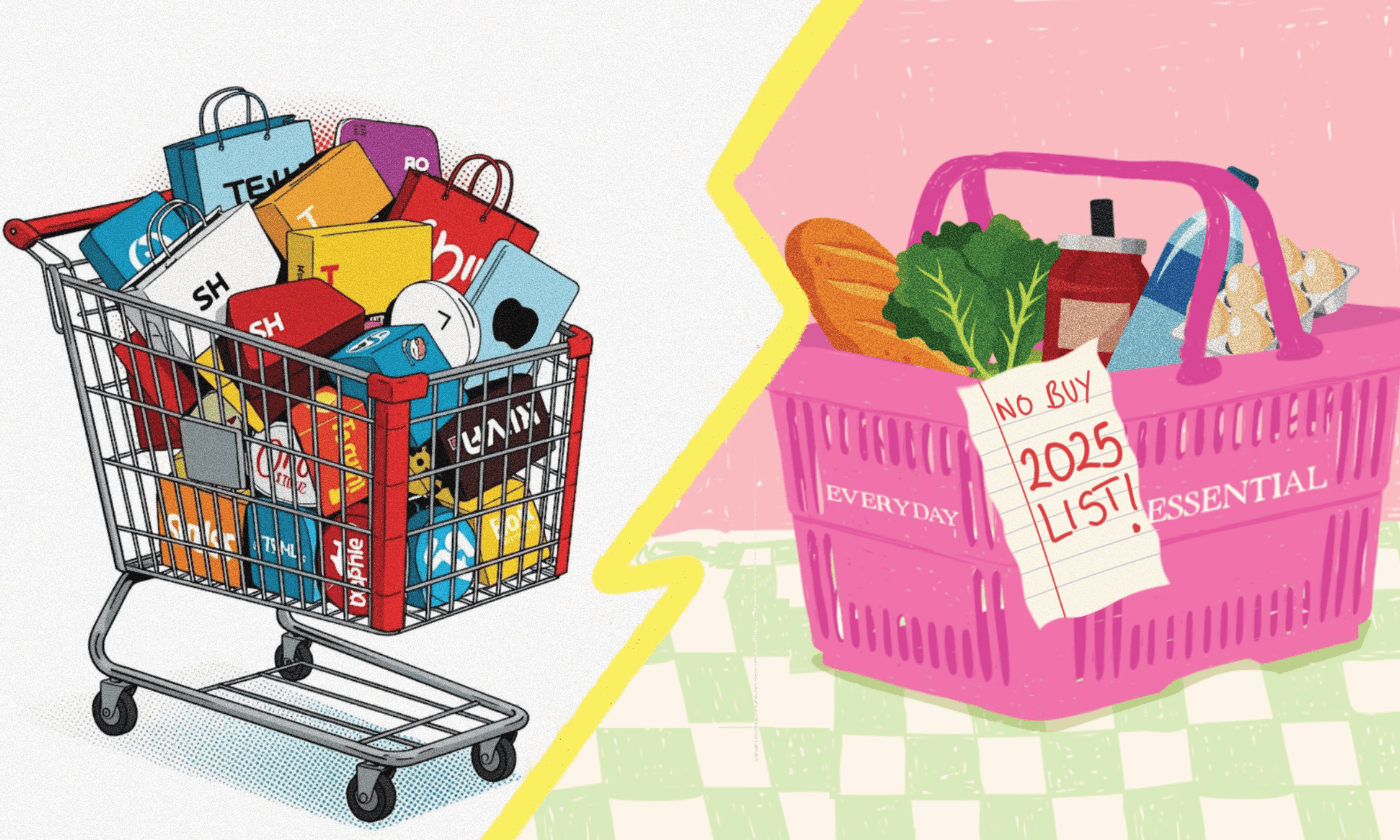Flaunt or Resist?
Eid this year saw the farshi shalwar make a dramatic comeback at iftars and Eid dawats.
Yet, as Gen Z embraced and flaunted the grandeur of the farshi shalwar, others stood out by opting out of adding yet another trendy piece of clothing to their wardrobe, hinting at a quiet resistance towards the pressures of indulging in over the-top trends.
This raises the larger question of whether Pakistan’s Gen Z, influenced by trends and virality, is beginning to resist or even reject overconsumption, despite being constantly bombarded with curated algorithms from the moment they wake up until they go to bed, leading them to spend on things they do not necessarily need. Signs are that this generation is shifting to minimalism in response to the daily overstimulation they face. This shift is not limited to fashion. In tech, lifestyle and other areas, Gen Z is increasingly questioning the virality of things rather than succumbing to a ‘must-have’ culture. But is this motivated by financial uncertainty or by a genuine pivot towards sustainability born from climate anxiety, or is it simply just another trend?
For many consumers, resisting the impulse to add yet another item to their shopping cart has become a conscious strategy to stay afloat in the face of today’s inflationary pressures, as evidenced by the TikTok ‘No Buy 2025’ trend that has gained traction all over the world. As part of this trend, many people are committing to buying only essentials and swearing off ‘influencer buys.’ Many are also posting lists on social media of things they refuse to buy, such as new clothing, cosmetics or electronic gadgets, as well as eating out less frequently and limiting other impulsive purchases. The goal is to break away from problematic spending behaviours. Rebecca Sowden, a popular American influencer known for her personal finance and budgeting advice, recently shared extensive and rigorous ‘No Buy 2025’ rules, prompting her followers to rethink how they spend their money this year. Sowden went from not buying new clothes to not even buying thrifted clothes, no new shoes (until the existing ones are worn out), no new makeup (unless dermatologically recommended), and putting money aside every week for essential transportation, groceries, and clothing expenses.
‘No Buy 2025’ has become the voice of many young adults who are struggling in this economy. Can we then foresee a ‘No Buy 2025’ in Pakistan? Given the plethora of videos on social media bashing the hike in the price of Eid collection clothes, this is not entirely out of the question. Instagram influencers and celebrities may have flaunted their Eid outfits, but for Pakistan’s Gen Z, what was once aspirational has become overwhelming for them because of the financial pressures they face.
Gen Z is becoming more financially conscious, which in turn is influencing their aesthetic preferences. Today, they are about ‘less is more’, ‘quality over quantity’, and finding ways to save money without compromising on style. This is also influenced by the rise of ‘anti-haul’ videos and other forms of ‘de-influencing’ content, where digital creators encourage their followers to think twice before spending their hard earned money.
However, is ‘de-influencing’ just encouraging people to buy something better? We have seen Pakistani influencers promoting cheaper and local dupes over imported and expensive makeup and gadgets (very close to de-influencing).
De-influencing is about combatting overconsumption and impulse buying, but is it actually preventing us from doing just that? All the ‘do not buy the Dyson Airwrap’, ‘do not buy the Charlotte Tilbury Contour Wand’, ‘do not buy the Stanley Cup’, and ‘do not get the AirPods Pro Max’ were usually followed by ‘Here’s what you can buy instead’ or ‘It is less expensive and available locally’. Anti-hauls were the rage in the 2016-2019 YouTube beauty guru era, when YouTubers in the beauty industry would post ‘anti-hauls’, expressing their reluctance to buy a product, either due to the ingredients, a negative experience, animal testing, limited shade ranges or other reasons. But still, it came down to, ‘This is the product, and this is why I won’t buy it again…’ followed by, ‘Here’s what you should buy instead.’ Great sentiment, but it misses the point of combating overconsumption by promoting yet another product. So it’s not really de-influencing per se, but ‘dupe promoting’, which is essentially promoting dupes and cheaper knockoffs of the same product.
The other question is whether Gen Z is taking a step in terms of consumption because of economic pressures or due to rising awareness about the environmental footprint of overconsumption. Thrifting and circular fashion have become popular, but how can a generation that can’t get enough ‘shopping hauls’ on social media ever lead a sustainable lifestyle? There is, in fact, a constant push-pull between their desire to consume responsibly and yet stay on style and buy products that make them feel good, even if it means splurging a little bit.
Many small fashion businesses in Pakistan have started to promote sustainable fashion by focusing on slow fashion, reusing fabrics and sourcing from local artisans. Similarly, there is a growing social media culture that promotes pre-loved items – such as makeup, bags, shoes and wedding wear – making it a popular way to promote sustainable fashion by providing affordable alternatives that reduce waste. For many Gen Zers, buying thrift or local items or from non-boycott list brands is more about the environmental impact and social implications rather than about saving money, and in this way, they are transitioning to sustainable practices. For instance, slow produced fabrics or garments made from recycled materials are highly sought after. Many brands are also incorporating history and heritage by using traditional Sindhi ralli and kantha techniques; other brands are prioritising quality over quantity by producing a small number of articles using ethical practices or recycled materials.
Maha Shahid is a marketing executive, Dawn Media. mahashahidd10@gmail.com




Comments (2) Closed